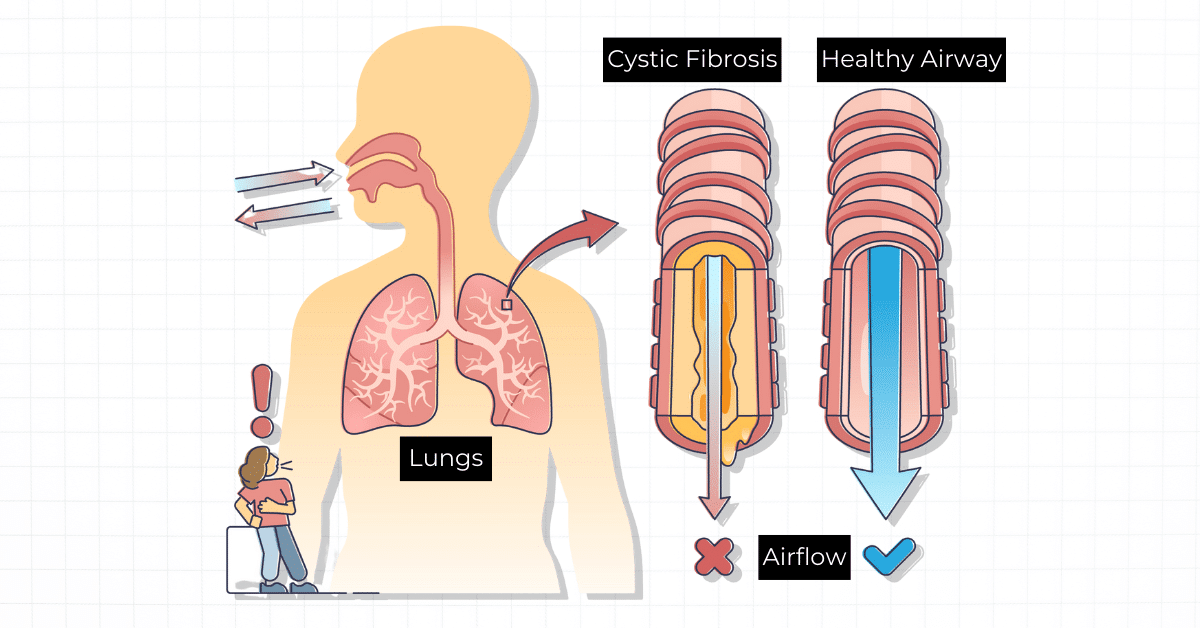Cystic fibrosis (CF) is a genetic disorder that primarily affects the respiratory, digestive, and reproductive systems. It is caused by mutations in the CFTR (cystic fibrosis transmembrane conductance regulator) gene, which leads to the production of thick and sticky mucus in various organs. CF is an autosomal recessive disorder, meaning that an individual needs to inherit two mutated copies of the CFTR gene (one from each parent) to develop the condition.
Here are key aspects of cystic fibrosis:
Respiratory System Involvement:
The most significant impact of CF is on the respiratory system. The thick mucus obstructs airways, making it difficult for individuals with CF to breathe. This can lead to chronic lung infections, inflammation, and damage to lung tissue over time.
Digestive System Involvement:
CF affects the digestive system by blocking the ducts that carry digestive enzymes from the pancreas to the small intestine. This results in poor absorption of nutrients and can lead to malnutrition, poor growth, and vitamin deficiencies.
Other Organs:
CF can also affect other organs, including the liver, sweat glands, and reproductive organs. Liver disease and infertility are potential complications.
Symptoms:
Common symptoms include persistent cough, recurrent lung infections, difficulty breathing, poor growth and weight gain, salty-tasting skin, and digestive problems such as diarrhea and greasy stools. For more information visit a Best Pulmonologist in Lahore.
Diagnosis:
CF is usually diagnosed through newborn screening or clinical testing if symptoms are present. Genetic testing can confirm the presence of CFTR mutations.
Treatment:
There is no cure for cystic fibrosis, but treatment aims to manage symptoms and improve the quality of life. This may include medications to thin mucus, antibiotics to treat infections, nutritional support, and physical therapy to clear airway mucus.
Lifespan:
Advances in medical care have significantly improved the life expectancy of individuals with CF. However, it is still a chronic and progressive condition, and life expectancy varies. With proper care, many individuals with CF can lead fulfilling lives into adulthood.
Genetic Counseling:
Because CF is a genetic disorder, individuals with a family history of CF or those planning to have children may consider genetic counseling to understand their risk and options.
Research into cystic fibrosis continues, with ongoing efforts to develop new therapies and treatments to further improve the quality of life for individuals affected by this condition. To get help visit a Pulmonologist in Rawalpindi.











